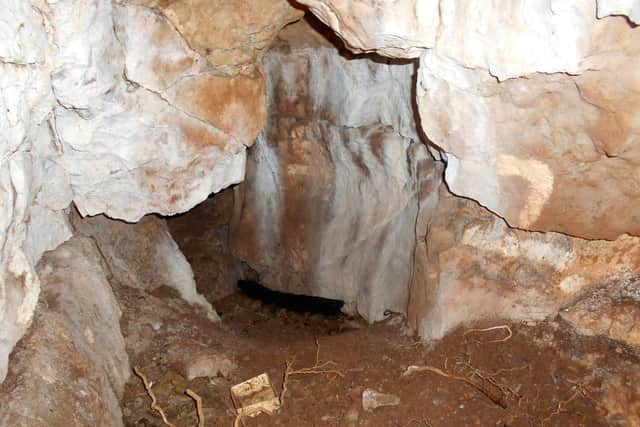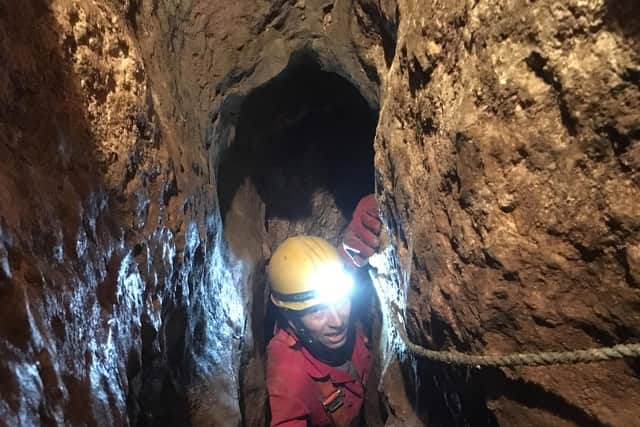Remains of 11,000-year-old 'oldest northerner' have been found in Cumbria - according to UCLan experts
and live on Freeview channel 276
Archaeologist Martin Stables unearthed an 11,000-year-old human bone and a periwinkle shell bead, in Heaning Wood Bone Cave, Cumbria.
Experts from the UCLan said his find gave “clear evidence” of ancient burials taking place in the North of England.
Advertisement
Hide AdAdvertisement
Hide AdThey believe the bones, which predate the previous 'earliest northern' remains by around 1,000 years, are the first recorded evidence of human activity after the Ice Age in the north.


Mr Stables had been searching the site since 2016 where he discovered human and animal bone, stone tools, prehistoric pottery and a bead made from perforated periwinkle shells.
He said: “I never expected anything like the Early Mesolithic connection in my wildest dreams.
"After six years digging, it’s all ended up in a place I never expected it to get to.
Advertisement
Hide AdAdvertisement
Hide Ad“I can’t wait to hear all the final results, it’s staggering so far, difficult to imagine what it would have been like around here over 11,000 years ago.”


Dr Peterson, a reader in Archaeology from UCLan described the find as a 'fantastic discovery', adding: "We’ve been delighted to confirm Martin’s unbelievable find dates back around 11,000-year-ago and gives us clear evidence of Mesolithic burials in the north.
“This is particularly exciting as these are some of the earliest dates for human activity in Britain after the end of the last Ice Age.”
Earlier human remains have been discovered in southern England and Wales.
Advertisement
Hide AdAdvertisement
Hide Ad

The destructive effect of past glaciations means such finds are rare in northern Britain, the university said.
